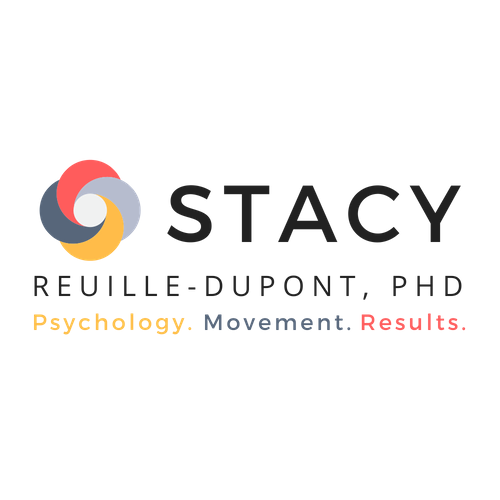Photo by: Photo by Markus Spiske on Unsplash
Change is a fundamental aspect of personal growth, yet many clients in therapeutic settings struggle to embrace it, often exhibiting resistance that hinders their psychological well-being. As psychologists, it is crucial to employ evidence-based strategies to help clients navigate these challenges effectively. Integrating movement-based therapy and nutrition into therapy offers a holistic health approach to facilitating change and enhancing mental health.
Understanding Resistance to Change
Resistance in therapy often stems from fear of the unknown, discomfort with new behaviors, or deeply ingrained habits. Clients may feel ambivalent about behavior change, even when recognizing its necessity. This ambivalence can lead to stagnation, making it essential for therapists to employ strategies that address both the psychological and physiological aspects of resistance.
The Role of Movement in Facilitating Change
Physical activity has been extensively studied for its positive effects on mental health. Engaging in regular movement can enhance mood, reduce anxiety, and improve overall emotional regulation. Incorporating movement-based therapy interventions into sessions can serve as a catalyst for change by:
- Enhancing Mindfulness: Movement practices such as yoga or tai chi encourage mindfulness, helping clients become more attuned to their bodily sensations and emotions which builds psychological resilence. This heightened awareness can facilitate a deeper understanding of their resistance and promote acceptance.
- Reducing Stress: Physical activity triggers the release of endorphins, which are natural stress relievers. By incorporating movement into therapy, clients can experience immediate reductions in stress, making them more receptive to change.
- Building Self-Efficacy: Mastering new physical activities can boost clients’ confidence in their ability to adapt and learn, reinforcing the belief that change is achievable and enhancing other behavior change strategies.
Nutritional Interventions and Mental Health
Nutrition plays a pivotal role in mental health, influencing mood, energy levels, and cognitive function. Educating clients about the impact of their dietary choices can empower them to make changes that support their psychological well-being. Nutritional interventions can:
- Stabilize Mood: Consuming a balanced diet rich in omega-3 fatty acids, vitamins, and minerals has been linked to improved mood and decreased symptoms of depression.
- Enhance Cognitive Function: Proper nutrition supports brain health, leading to better decision-making and problem-solving abilities, which are crucial when implementing change.
• Increase Energy Levels: A well-balanced diet provides sustained energy, reducing fatigue and enhancing motivation to engage in therapeutic activities.
Evidence-Based Strategies to Overcome Resistance
To effectively address resistance and promote change, consider integrating the following evidence-based strategies into your practice:
- Motivational Interviewing (MI): This client-centered approach enhances intrinsic motivation by exploring and resolving ambivalence. MI has been effective across various behaviors, including substance use and health-promotion activities. As I learned how to perform this questioning technique I saw my clients address ambivalence much quicker and more successfully.
- Transtheoretical Model (TTM): Also known as the Stages of Change model, TTM assesses an individual’s readiness to act on new behaviors. Tailoring interventions to a client’s stage can facilitate progress, particularly in adopting healthy eating and exercise habits. Movement-based therapy and nutritional interventions for mental health can help clients manage stress to change in the treatment room, thus learning that they can cope with the discomfort of making changes in their lives beyond the therapy session.
- Dialectical Behavior Therapy (DBT): DBT combines acceptance and change strategies, teaching clients skills in mindfulness, distress tolerance, emotion regulation, and interpersonal effectiveness. These DBT skills can help clients manage resistance by increasing emotional and psychological resilience.
Practical Tips to Help Clients Get Unstuck
When faced with resistance in the treatment room, consider the following practical interventions:
- Set Micro-Goals: Breaking down larger objectives into smaller, manageable tasks can reduce feelings of being overwhelmed and increase motivation.
- Use Cognitive Restructuring: Encourage clients to identify and challenge negative thought patterns that hinder change, fostering a more positive outlook.
- Incorporate Play and Novelty: Introducing fun and new activities can stimulate dopamine production, enhancing pleasure and motivation when dealing with difficult things.
- Practice Mindfulness: Mindfulness techniques can help clients stay present, reducing anxiety about change and increasing acceptance of what is.
• Develop Coping Strategies: Teaching clients psycholgoical resilience and coping mechanisms can prepare them to handle stressors that accompany change.
Conclusion
Integrating movement and nutrition into therapeutic practices offers a comprehensive approach to overcoming client resistance and facilitating meaningful change. By employing evidence-based strategies and practical interventions, psychologists can empower clients to embrace change, leading to enhanced psychological health and overall well-being.
Want more individualized insights on mental health, wellness, and exercise science? Join our Mind Over Matter Monthly Subscription Program
#MindBodyRecovery #SomaticPsych #HolisticHealingJourney #MentalWellnessMatters #EmbraceChangeHeal #TherapeuticTransformation #WholeSelfHealing #MindBodyOptimization #PsychologyOfWellness #TrainMindBody #NutritionPsych #MindfulMovement #HolisticHealthCoach #MentalFitnessJourney #PsychoWellness #MindBodyFuel #SelfOptimizationTriad #StudioBLife #VibrantLiving #EmbodiedSpiritSelf #MentalHealth #PsychologyInPractice #BehaviorChange #MindBodyHealing #ResilientMindset #TherapistTools
I WANT YOU TO FEEL VIBRANT AND ALIVE, COURAGEOUS,
WORTHY, AND FULL OF AMAZEMENT AND WONDER.
I help people take back their lives and heal physically, emotionally, mentally, and spiritually. My goal is to give you the tools you need to live a magnetic life, drawing to you the things you want, and creating your highest most incredible life.
- Let’s Get Acquainted. Learn More About Me
- You Can Also Book a Consultation Session with Dr. Stacy Here
Check out Online and In-Person Programs at StudioB.Life, our integrative psychology clinic where we use movement and nutrition alongside behavioral health interventions to help you Become the Best Version of You, You Can Be.



 Twitter
Twitter Facebook
Facebook Linkedin
Linkedin






